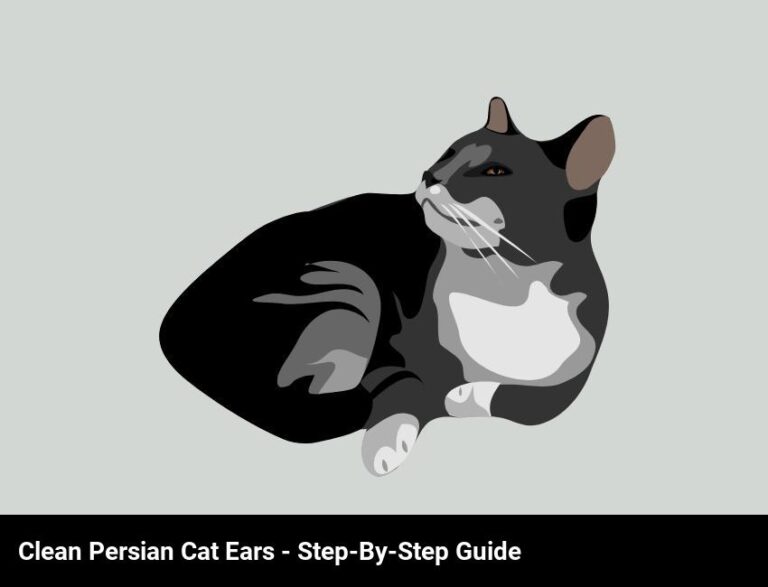Do You Have Persian Cat Allergies?
No, I do not have Persian Cat allergies.
When it comes to pet allergies, we often think of furry, four-legged friends like cats and dogs. But what about Persian cats specifically? Do you have Persian cat allergies? If so, you’re not alone. Many people suffer from allergies to this particular breed.
In this blog, we will explore the symptoms, causes and treatments of Persian cat allergies. We’ll also discuss how to make your home environment more comfortable for those with allergies and how to ensure that your Persian cat is healthy and won’t cause allergies.
If you’re currently experiencing symptoms of a Persian cat allergy, don’t worry. With the right diagnosis and treatment, you can live comfortably with your furry friend. So let’s dive into the world of Persian cat allergies and find out what we need to do to reduce our risk and live our best lives.
What are the symptoms of persian cat allergies?
Yes, you can be allergic to Persian cats! Allergic reactions to cats are caused by allergens in the cat’s saliva, dander, and urine. These allergens are then spread through the air when the cats groom themselves.
The most common symptom of Persian cat allergies is sneezing, coughing, and wheezing. You might also experience itchy, watery eyes, and a stuffy or runny nose. If you’re allergic to cats, you might also find that your skin becomes inflamed or irritated.
If your symptoms become more severe, you might experience shortness of breath, chest tightness, or even hives. If you experience any of these symptoms, it’s important to seek medical attention.
If you suspect that you’re allergic to Persian cats, you should talk to your doctor. They might recommend a skin test or other allergy testing to determine the source of your allergies. Once you know the cause, you can work with your doctor to come up with a treatment plan to reduce your symptoms.
What are the causes of persian cat allergies?
Do you have Persian cat allergies? Many people do, and the symptoms can range from mild to severe. But what are the causes of these allergies?
It’s thought that the primary cause of Persian cat allergies is an allergic reaction to their saliva, which is deposited on their fur when they groom themselves. Allergens in the saliva can be transferred to humans through contact with the cat, or by inhaling the saliva particles that become airborne.
Another possible cause is an allergic reaction to cat dander, which are tiny particles that come from the cat’s skin. This dander can become airborne and also cause allergic reactions when inhaled.
People who suffer from Persian cat allergies may also be allergic to other types of animals, such as dogs, horses, and birds. This is because proteins in the animal’s saliva and dander are similar, and can cause the same sort of allergic reaction.
If you think you may be allergic to Persian cats, it’s important to get a proper diagnosis so you can take steps to reduce your symptoms. An allergy test can help determine the exact cause of your allergies, and your doctor can then recommend the best course of treatment.
Are persian cat allergies different from allergies to other cats?
Yes! Persian cat allergies are different from allergies to other cats. Persian cats have a longer and denser coat, which means they have a higher amount of dander and allergens compared to other breeds. This means that people with allergies to cats should take extra precautions when considering a Persian cat as a pet.
When it comes to allergens, there are several factors at play. Not only the breed of the cat, but also the individual cat’s genetics; a particular cat may have higher or lower levels of allergens than others of the same breed. Additionally, the level of allergens can vary with the environment, such as the presence of dust or other materials that can accumulate on the cat’s fur.
It’s important to know that not everyone who is allergic to cats will also be allergic to Persian cats. Some people may be able to tolerate a Persian cat better than other breeds. That said, it’s important to take extra precautions if you are allergic to cats and considering getting a Persian cat.
The best way to determine if you are allergic to a Persian cat is by doing an allergy test. This way, you can be sure that the cat won’t cause you any allergic reactions. If the test comes back positive, then you can look into other breeds of cats or other pets that may be more suitable for your allergies.
In conclusion, Persian cat allergies are different from allergies to other cats. If you’re considering getting a Persian cat and you have allergies, it’s important to take extra precautions and do an allergy test first to ensure that the cat won’t cause any allergic reactions.
What is the best way to diagnose persian cat allergies?
The best way to diagnose Persian cat allergies is to visit an allergist who can recommend a skin prick test. During the test, a small amount of allergen extract is placed on the skin and then a needle is used to prick the skin, usually on the forearm. The allergist then looks for signs of an allergic reaction, such as redness, swelling, or itching in the area. If an allergy is present, the allergist may then recommend further testing or treatment.
For people who prefer to test their allergies in the comfort of their own home, there are also over-the-counter allergy tests available. These tests use a patch of adhesive to deliver a small amount of allergen to the skin, which may then be monitored over time. If an allergic reaction is present, the results should be reported to a doctor or allergist for further diagnosis and treatment.
If you suspect you may have an allergy to Persian cats, it’s important to seek medical advice and testing to get a proper diagnosis. Allergies can be serious and can cause a range of symptoms, so it’s important to get the right diagnosis and treatment.
How can you reduce your risk of developing persian cat allergies?
Yes, you can reduce your risk of developing Persian cat allergies! Here are a few simple tips to help you stay allergy-free:
- Take steps to reduce your contact with allergens: Start by keeping your cat out of your bedroom and away from carpets and upholstered furniture. Encase your beds, pillows, and mattresses in hypoallergenic covers that won’t trap dander and fur. Vacuum often, and use a vacuum with a HEPA filter to help capture allergens.
- Invest in air purifiers: Air purifiers can help remove allergens from the air in your home, reducing your chances of coming into contact with them. Look for models that are specifically designed to filter out pet dander.
- Shower after handling your cat: Allergens can cling to your skin, hair, and clothes, so it’s a good idea to take a shower after you’ve handled your cat. This can help to reduce any contact you may have with allergens.
- Wear protective gear: If you must handle your cat, it’s a good idea to wear protective gear such as gloves and a face mask. This will help to minimize your exposure to allergens.
By following these simple steps, you can significantly reduce your risk of developing Persian cat allergies. With a little effort, you can enjoy your cat without the worry of allergies.
Are there any treatments for persian cat allergies?
Yes, there are treatments available for Persian cat allergies! The first step is to identify the specific allergen that is causing your allergy symptoms and then a treatment plan can be developed. Allergy shots and desensitization injections are two common treatments that can help reduce allergy symptoms.
Allergy shots are injections that contain small doses of the allergen that is causing your allergy symptoms. Over time, your body will become less sensitive to the allergen and your allergy symptoms will decrease. Allergy shots can be administered by your doctor or healthcare professional and will require regular visits for injections.
Desensitization injections are a type of medication that you take at home. This medication contains small doses of the allergen and should be taken daily. Over time, your body will become less sensitive to the allergen and your allergy symptoms will decrease.
It is important to remember that these treatments are not a cure for allergies, but they can help reduce the severity of your symptoms. Also, it is important to talk to your doctor or healthcare professional before starting any treatments. They will be able to provide you with the best advice and determine the best treatment plan for you.
How can you make your home environment more comfortable for those with persian cat allergies?
If you are living with Persian cat allergies, it can be difficult to make your home environment comfortable. However, there are some steps you can take to reduce your allergic reactions.
First, make sure to vacuum and dust often. This will help reduce dander and other allergens in the air. You should also invest in a high-efficiency particulate air (HEPA) filter for your home. HEPA filters will help trap allergens and pet dander in the air.
Second, consider using allergen-proof covers on your bedding, furniture, and other surfaces. Allergen-proof covers will help protect you from coming into contact with pet dander and other allergens.
Third, make sure to keep your pets in designated areas of your home, away from bedrooms and other places where you spend a lot of time. This will help reduce the amount of pet dander that can spread around your home.
Finally, consider investing in an air purification system. Air purifiers can help reduce pet dander and other allergens in the air.
By following these steps, you can make your home environment more comfortable for those with Persian cat allergies. With the right precautions, you can reduce your allergic reactions and make your home an allergy-free zone.
How can you make sure your persian cat is healthy and won’t cause allergies?
You can keep your Persian cat healthy and reduce the risk of allergies with a few simple steps. Firstly, regular bathing is essential for maintaining their long, silky fur. Choose a gentle shampoo that won’t irritate their skin. Secondly, regular grooming helps remove excess fur and dander, which can trigger allergies. Make sure to use a soft brush specifically designed for cats so you can easily remove tangles and mats. Thirdly, daily brushing keeps their fur looking beautiful and helps remove excess dander. Finally, keep their litter box clean and make sure that you replace the litter every couple of weeks.
All these steps will help your Persian cat stay healthy and reduce the risk of allergies. If you are concerned that you have an allergy to your Persian cat, visit your doctor and they can help you determine if this is the case.

Frequently Asked Questions
How does having a persian cat affect your allergies?
Having a Persian cat may affect your allergies in a few different ways. While some people may have a reaction to the animal’s fur, others may be more sensitive to the saliva and dander that the cat produces. Additionally, the cat’s litter can also be a source of allergens. It is important to talk to your doctor about your allergies to determine the best course of action.
Could having a persian cat worsen your allergy symptoms?
Yes, it is possible that having a Persian cat could worsen your allergy symptoms. Allergies to cats can vary from person to person, so if you already have allergies to cats, it is best to avoid having a Persian cat in your home.
Can regular grooming help reduce the effects of persian cat allergies?
Yes, regular grooming of a Persian cat can help reduce the effects of allergies. Grooming helps to remove potential allergens from the coat, as well as reducing the amount of dander in the air. This can make it easier for those with allergies to manage their symptoms. Additionally, using air purifiers and vacuuming often can also help.
Are there any special considerations for people with persian cat allergies?
Yes, people with Persian cat allergies should take extra precautions. It is important to avoid direct contact with the cat, as well as any fur or dander that may be present in the home. It is also important to keep your home clean and free of dust and pet hair. If you have difficulty controlling your symptoms, talk to your doctor about medications and other treatments that can help.
How do you know if you are allergic to persian cats?
If you think you may be allergic to Persian cats, it is important to watch out for common symptoms of an allergic reaction. These can include sneezing, coughing, watery eyes, itchy skin, rashes, and difficulty breathing. If you experience any of these symptoms after coming into contact with a Persian cat, it is best to consult with a doctor to determine if you have an allergy.







